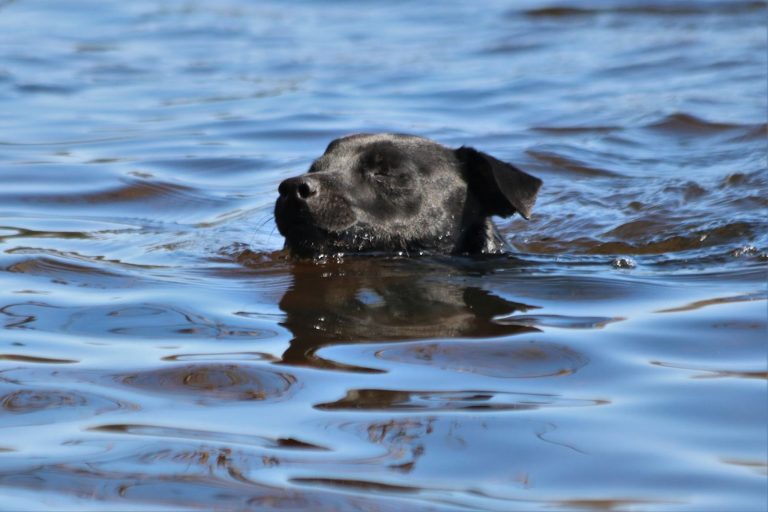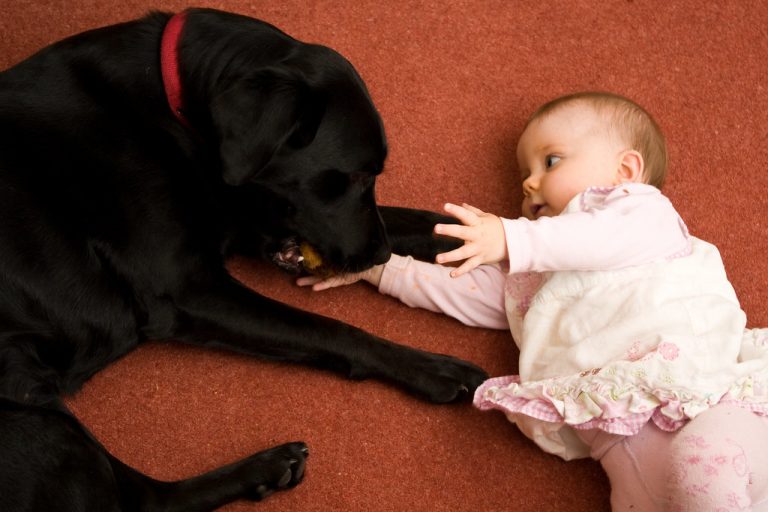Labradors are one of the most beloved dog breeds for their friendly and loyal personalities. As your furry companion grows and matures, it’s important to understand the various life stages they will go through and how to best support their physical and mental well-being.
Labrador life cycle can be broken down into four distinct stages: puppyhood, adolescence, adulthood, and the senior years. Each stage comes with its unique characteristics and challenges, but with proper care and attention, you can ensure your Labrador lives a happy and healthy life.
Key Takeaways:
- Labrador Retriever’s life cycle can be divided into four stages – puppyhood, adolescence, adulthood, and senior years.
- Understanding each stage’s unique characteristics and changes is crucial to providing proper care and training.
- Regular veterinary check-ups, proper nutrition, exercise, grooming, and preventive healthcare are essential for your Labrador’s well-being.
Labrador Puppy Growth Stages
If you’re bringing home a Labrador puppy, it’s important to understand the growth stages it will go through to provide the best care possible. Here’s what you should expect:
- Newborn stage (0 to 2 weeks): During the first two weeks of life, Labrador puppies will rely almost entirely on their mother for nourishment and care. They’ll spend most of their time sleeping and developing their senses.
- Transitional stage (2 to 4 weeks): As puppies’ eyes and ears open, they’ll start to explore their surroundings and develop more coordination. They’ll also be introduced to solid food during this time.
- Socialization stage (3 to 12 weeks): This is a crucial period for Labrador puppies as they learn to interact with their littermates, humans, and other animals. It’s important to expose them to a variety of experiences and stimuli to promote proper socialization.
- Juvenile stage (3 to 6 months): During this stage, Labrador puppies will experience a growth spurt and begin to lose their baby teeth. It’s a good time to start obedience training and establish good behavior habits.
- Adolescent stage (6 to 18 months): As Labradors reach adolescence, they’ll become more independent and energetic. They may attempt to push boundaries and challenge authority, so consistent training and exercise are crucial during this time.
- Adulthood (1 to 7 years): Typically, Labradors will reach adulthood between the ages of one and two years old. They’ll be fully physically and mentally mature and should receive regular preventive healthcare to maintain their well-being.
- Senior stage (7 years and older): As Labradors age, they may experience physical and cognitive decline. Regular veterinary check-ups and adjustments to their care routine can help maintain their quality of life.
It’s important to remember that each Labrador may progress through these stages at their own pace. By providing proper care and understanding their changing needs, you can help your Labrador thrive at every stage of their life.
Labrador Senior Years
As your Labrador reaches their golden years, you may notice some changes in their behavior and health. Like humans, dogs experience aging, which can lead to physical and cognitive decline. Understanding and addressing these changes is essential to ensure your furry friend has a comfortable and happy life in their senior years.
Some common signs of aging in Labradors include arthritis, decreased mobility, weight gain, and dental issues. Additionally, cognitive decline can lead to confusion, forgetfulness, and changes in behavior. It’s crucial to take your senior Labrador for regular veterinary check-ups to catch any health concerns early on.
To promote your senior Labrador’s overall well-being, consider making adjustments to their care routine. For example, a soft bed with extra padding can help alleviate joint pain, and regular gentle exercise can help maintain their mobility. A senior-specific diet can address any weight gain, and dental hygiene is crucial to prevent any oral health issues.
It’s important to keep your senior Labrador mentally stimulated as well. Activities like puzzle toys and scent training can help keep their minds active and engaged. Providing a peaceful and predictable environment can also help reduce confusion and anxiety.
As with all life stages, senior years bring their unique challenges and opportunities. With proper care and attention, you can ensure your Labrador enjoys a happy and healthy life, even in their twilight years.
Labrador Senior Years
Congratulations! You and your furry companion have made it to the senior years. This stage is when your Labrador will need more specialized care due to the natural aging process.
As your Labrador ages, you may notice changes in their behavior, including a decrease in activity level, a decrease in appetite, and an increase in sleep. These are normal signs of aging, but it’s important to monitor them closely and make sure they are not indicative of a more serious health issue.
Arthritis is a common condition that can affect senior Labradors. Symptoms include limping, stiffness, and difficulty getting up and down. If you notice your senior Labrador exhibiting any of these signs, it’s essential to consult with a veterinarian to determine the best course of action.
Additionally, cognitive decline is another issue that can affect aging Labradors. Signs of cognitive decline include confusion, disorientation, and changes in personality. Providing mental stimulation through toys and puzzles can help slow cognitive decline and keep your senior Labrador mentally sharp.
Regular veterinary check-ups are essential during your Labrador’s senior years to catch health issues early. Your vet may also recommend adjustments to their care routine, such as changes in diet or exercise, to accommodate their changing needs.
Remember, your senior Labrador may not be as active as they once were, but they still need your love and attention. Spend quality time with them, provide them with a comfortable living environment, and be patient and understanding as they navigate the challenges of aging.
Labrador Senior Years
As your Labrador ages, it is important to provide them with the appropriate care and attention they need to maintain their health and well-being. Understanding the aging process can help you recognize the signs of age-related issues and make necessary adjustments in your dog’s care routine.
The aging process for Labradors typically begins around age 7. During this time, you may notice a decline in their physical abilities, such as decreased energy or mobility issues. Additionally, they may develop age-related health conditions, such as arthritis or vision and hearing loss. It is important to address these issues promptly with the help of a veterinary professional.
To promote your Labrador’s overall well-being during their senior years, there are several steps you can take. Providing a healthy and balanced diet, regular exercise, and mental stimulation can all help maintain their physical and mental health. Additionally, regular veterinary check-ups can help identify and address any health concerns early on.
In addition to physical care, providing a comfortable and safe living environment is also crucial for senior Labradors. This may include removing any potential hazards from your home and providing soft bedding and adequate lighting. You may also want to consider making adjustments to your home, such as installing ramps or steps, to make it easier for your Labrador to navigate.
By understanding the aging process and providing appropriate care and attention, you can help ensure your senior Labrador lives a happy and healthy life.
Conclusion
Understanding the Labrador’s life stages is crucial for providing proper care and nurturing for your furry companion at every stage of their life. As your Labrador progresses through puppyhood, adolescence, adulthood, and the senior years, their needs and behaviors will change. By being proactive and staying informed about the different stages, you can help your Labrador lead a healthy and fulfilling life.
Remember to provide a stimulating environment for your Labrador puppy and to be consistent with positive reinforcement training. As they enter adolescence, continue to offer ample exercise and mental stimulation to channel their increased energy. In adulthood, prioritize proper nutrition, grooming, and preventive healthcare. And in the senior years, be attentive to any signs of aging and make adjustments to their care routine as needed, including regular veterinary check-ups.
By following these guidelines, you can help ensure that your Labrador Retriever has a happy and healthy life, no matter their stage of development. Take the time to truly understand your furry friend’s life stages, and you will both reap the benefits.
FAQ
What are the different life stages of a Labrador Retriever?
The different life stages of a Labrador Retriever include puppyhood, adolescence, adulthood, and the senior years.
What should I expect during the puppy stage?
During the puppy stage, Labradors go through milestones such as teething, socialization, and potty training. It’s important to provide a nurturing and stimulating environment.
What challenges come with the adolescent stage?
The adolescent stage of Labradors is characterized by increased independence and energy. Consistent training and exercise are important, along with providing mental stimulation to address behavior changes.
What responsibilities come with Labrador adulthood?
In Labrador adulthood, it is important to focus on their physical and mental maturity. Proper nutrition, exercise, grooming, and preventive healthcare are essential for their well-being.
How can I promote the well-being of my Labrador in their senior years?
In their senior years, Labradors may experience signs of aging like arthritis and cognitive decline. It is important to provide appropriate care and make adjustments to their routine. Regular veterinary check-ups are crucial.
Why is it important to understand the Labrador’s life stages?
Understanding the Labrador’s life stages allows you to provide appropriate care and nurturing at every stage of their lives. It ensures their well-being and happiness.










